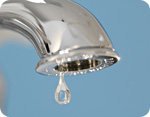
Big Pharma's Pills Contaminated with Machine Parts at Pill Factories
 Monday, October 27, 2008 Monday, October 27, 2008by Mike Adams, the Health Ranger Editor of NaturalNews.com (See all articles...) Tags: Big Pharma, health news, Natural News |
- Amazing microscopy photos reveal how freezing crystals attempt to mimic electronic structures they are touching
- The dark truth behind Ozempic and Wegovy: Big Pharma's profit-driven gamble with your health
- Biden administration targeted mask and vaccine opponents as "terrorists," new docs reveal
- Toxicologist reveals four simple ways to slash microplastics in your drinking water
- This overlooked class of food additives is linked to Crohn's disease and cancer
- POST-PANDEMIC DEATH SPIRAL: Over 1.5 million avoidable deaths occurred in USA AFTER Covid-19 mostly disappeared - must be the deadly mRNA JABS
- Acetaminophen and antidepressants lead to childhood ER visits at significant rate — a symptom of a bigger problem poisoning kids’ brains
- North Carolina Supreme Court rules federal vaccine immunity doesn't trump parental rights
- Pinto beans 101: A guide to soaking, seasoning and serving for maximum flavor
- Unlocking methylene blue: A century-old compound steps into the cancer spotlight
- YouTube erases top Canadian political channel after Canadian Broadcasting Corporation initiates smear campaign
- TCM's timeless secrets for liver health and better sleep
- Scientists warn Venus hides deadly “city-killer” asteroids with Earth in their crosshairs
- A closer look at the corporate influences steering the CDC and manipulating US health policy
- HEALTH SECRETS: How to Instantly Block MSG Toxicity Using Natural Substances (and the secret of Methylene Blue)
- Video reveals that shocking number of CDC officials who pushed COVID death jabs are JEWS with dual Israeli-American citizenship
- The hidden dangers of plant-based milks and soy formula: Why your toddler needs real dairy
- Vaccines are driving the autism epidemic and studies already point this out, but the vaccine industry is protected
- Globalists call for “celebration” of plunging human fertility as war against humanity accelerates
- WHO Pandemic Treaty sparks sovereignty concerns amid secretive voting and U.S. withdrawal
- Microsoft exposed for SILENCING EMAILS that discuss genocide in Gaza, while fueling Israel's war machine with AI and cloud tech
- HEALTH SECRETS: How to Instantly Block MSG Toxicity Using Natural Substances (and the secret of Methylene Blue)
- WAR ON COGNITION: The Coordinated Assault on Your Brain and How to Defend Yourself Against Every Attack
- Lost 5,000-year-old civilization uncovered beneath Arabian sands
- MSG EXPOSED: Hidden Neurotoxins Found in Groceries, Snacks and Popular Fast Food Menus
- The 20 deadliest sugar-loaded foods and how to replace them before they kill you
- Trump signs controversial Take It Down Act amid concerns of censorship and government overreach
- METHOD OF OPERATION SINISTER: Get everyone vaccinated for Covid BEFORE they figure out how deadly the mRNA jabs really are - that was the plot
- Big Pharma's Dirty Secret: How Prescription Drugs Are Starving Your Body of Essential Nutrients
- RED ALERT: Nuclear War Between India and Pakistan Could Trigger Global Catastrophe… full RISK ANALYSIS
- FDA forces Pfizer, Moderna to admit COVID vaccines cause lasting heart damage in young males
- Vitamin C: A potential game-changer in cancer treatment
- China's orbital AI leap: Space-based computing constellation launch ignites global tech competition
- An inexpensive and forgotten superfood: BEANS are key to reversing chronic disease
- Merck's mumps fraud: A 50-year cover-up exposed as vaccine efficacy claims crumble
- Study: Dark chocolate and tea may lower blood pressure as effectively as medication
- Big Pharma's Dirty Secret: How Prescription Drugs Are Starving Your Body of Essential Nutrients
- RED ALERT: Nuclear War Between India and Pakistan Could Trigger Global Catastrophe… full RISK ANALYSIS
- WAR ON COGNITION: The Coordinated Assault on Your Brain and How to Defend Yourself Against Every Attack
- Singapore's draconian vaccine mandate: Citizens face jail time for refusing FORCED medical procedures that do HARM
- Head of L.A. Port warns of incoming plunge in U.S. supply chain, empty shelves and inventory depletion in 5-7 weeks
- URGENT REPORT: The China Import Embargo - What to Stockpile Now Before America Runs Out
- Trump Unleashes Economic Doomsday on America with "Secondary Sanctions" that BLOCK all Exports from China, with NO exceptions!
- JESUS NEVER SPOKE ENGLISH: Historical facts on why the Bible you’re probably reading has been altered, redacted or hidden from much of its original meaning
- EU's digital censorship SURTAX and vaccine "misinformation" CRACKDOWN targets vaccine truth seekers in Orwellian push for conformity
- Why All Government Officials and Big Tech CEOs Who Engage in Systematic Viewpoint Censorship Must Be ARRESTED, Prosecuted, and Sentenced to Life in Prison
- Rubio exposes Biden's surveillance of American dissent: Outrageous free speech violations
- MSG EXPOSED: Hidden Neurotoxins Found in Groceries, Snacks and Popular Fast Food Menus
- U.S. Government's Bio-War Against America: 15 Historical Medical Horrors Inflicted on the American People by the Government Itself
- HEALTH SECRETS: How to Instantly Block MSG Toxicity Using Natural Substances (and the secret of Methylene Blue)
- Why the Trump administration will FAIL, and America’s economy, military and industrial base will COLLAPSE if Trump’s weaponized tariffs aren’t halted
- BitChute CEO warns U.K. heading toward “China-style internet censorship”
- Landmark study of 85 million reveals shocking surge in heart attacks, strokes, and sudden death following the notorious COVID-19 jab
- ELEMENTAL CRISIS: How China and Russia Control the Critical Minerals Needed for AI, Military Robots, and Economic Domination
- Red Cross issues warning to stop blood plasma donations from vaccinated people
- Scientists confirm: GENIUS brain function can be spontaneously unleashed in humans without any apparent cause
- EPA advisor admits the agency is funneling billions to climate groups ahead of Trump’s return to White House
- HYSSOP: What research reveals about the health benefits of this ancient holy herb
- Two containers with completed ballots fall out of truck in Florida
- Newly released JFK files reveal Pentagon's role in creating Lyme disease and covid in the same lab
- Mike Adams releases country western hit single: Goin’ Back in Time is Comin’ Home
- Global leaders unite to clamp down on “misinformation” with UN-backed Cascais Declaration
- BREAKING: 2025 NDAA authorizes mandatory military draft of WOMEN across America… as Pentagon pursues global NUCLEAR war with both Russia and China at the same time
- I Want My Bailout Money – new song released by Mike Adams
- Michael Yon warns of a ZIONIST TAKEOVER in Trump’s second administration
- BOMBSHELL: DNA testing kits are a SCAM to develop ethnic-specific bioweapons
- Ozempic and Wegovy weight loss drugs are injectable LIZARD VENOM PEPTIDES that may unleash a devastating wave of organ failure… side effects align with symptoms of SNAKE BITES
- The Health Ranger releases “Vaccine Zombie” song and music video, using AI-animated zombies for the music video
- These 13 countries just signed an agreement to engineer a global FAMINE by destroying food supply
- Israeli soldiers accused of even more torture and abuse in the West Bank
- RFK Jr. clears key hurdle: Sen. Susan Collins backs controversial HHS nominee, signaling a new era for health policy
- Sermon 30: How Jesus reveals Caesar’s FAKE CURRENCY and FALSE AUTHORITY
But an AP review of FDA documents finds widespread contamination problems at Puerto Rican pill factories, which have led to the export and sale of tainted and potentially unsafe medications. The documents reviewed concerned FDA inspections of 13 Puerto Rican factories between 2003 and 2007, accounting for approximately half of the pill factories on the island.
"People would be shocked to find this whole variety of contamination," said Sidney Wolfe of Public Citizen. "The common denominator of all these is there's really poor quality control."
This is especially interesting given that the FDA has acted to protect Big Pharma's monopoly drug pricing scheme in the United States by claiming that pills imported from Canada, Mexico or other countries might be unsafe due to contamination or poor quality control. Therefore, the FDA claims, American consumers should be forced to pay the highest prices in the world for drugs sold at monopoly prices in the United States. And yet we're now finding that even those drugs sold in U.S. pharmacies aren't manufactured here, and they may be even more dangerous than the same medications purchased from Canada.
Metal particles, door paint found in medication pills
Among the incidents identified in the AP review was a case where a worker sorting blood pressure pills for Biovail Corp. noticed blue flecks on the pills that matched the paint on the factory's doors. Eventually, the employee's reports led to the factory covering the drug carts, but no investigation was launched into whether contaminated shipments had gone out, and the incident was written off as a fluke."[The] incident was considered an isolated event ... even when the employee reported having observed the same particles before," the FDA report on the incident reads.
In another case, a plant owned by Teva Pharmaceutical Industries continued exporting drugs that it knew to contain small metal particles inside pill bottles or even embedded in the pills themselves. In addition to being aware of conditions inside the factory, the company had received at least six consumer complaints about the pills.
When challenged by the FDA, the company's quality control unit said that the presence of metal in the pills was normal, because the plant's machinery was made out of metal!
The plant closed two months later. As in most similar cases, the company denied any connection between the defective pills and the factory shutdown.
Machine parts ground into medication pills?
In May 2006, after patients complained of finding machinery pins inside pill bottles of Wyeth's depression drug Effexor and heartburn drug Protonix, the FDA sent a warning letter to the factory in question, asking why the plant was not "able to detect that the affected equipment was missing some of its parts."Not all cases involved foreign materials. In March 2005, the FDA raided a Puerto Rican GlaxoSmithKline plant after receiving reports that pills of the antidepressant drug Paxil CR had split apart, making it hard for patients to calculate proper dosages. In that raid, agents found tablets of the diabetes drug Avandemet that contained improper dosages.
The FDA has been criticized for failing to monitor the drug industry well enough to make sure that such errors do not occur, or that they are corrected more quickly. Critics point out that the FDA often fails to act until several incidents have occurred.
The agency says that it dislikes challenging companies after only one incident, because it is hard to prove that the problem is systemic, as seen in the incident of the paint-flecked pills, which Biovail claimed was a fluke. (Quiz time: How many flukes does it take to make a pattern? FDA answer: There are no patterns. They're ALL flukes!)
The FDA inspects each factory in Puerto Rico approximately once every two years, by the way. That's one day out of 730 days.
By the way, wasn't it the FDA that urged Americans to not buy pharmaceuticals from Canada or Mexico because they might not be safe? Apparently swallowing ground-up machine parts from a pill factory in Puerto Rico is safer than buying quality-controlled pharmaceuticals from Canada, if you ask the FDA. Then again, maybe they're just trying to protect the U.S. pharmaceutical monopoly.
The pills are dangerous even if they're manufactured correctly
What these outrageous quality control problems bring to light is the fact that pharmaceuticals are dangerous to your health on two levels: First, there's the risk of harm or death caused by the drugs themselves, even when they are properly manufactured and consumed. Around 100,000 Americans are killed each year by FDA-approved prescription drugs, according to research conducted by the American Medical Association.But now, there's a whole new level of risk: Contamination at the factory. With medication pills possibly containing machine parts, pieces of metal, paint and other contaminants - and the utter lack of proper FDA oversight of these factories - it presents yet another good reason for consumers to find natural alternatives to dangerous prescription medications.
These pharmaceutical pills that are contaminated with metal parts and other chemicals do serve one purpose, however: They make patients sick, bringing them back to the hospital where they are almost certain to be prescribed yet more prescription drugs sold by the very same companies the manufactured the contaminated pills in the first place. Repeat business, anyone?
Big Pharma at FETCH.news
Get independent news alerts on natural cures, food lab tests, cannabis medicine, science, robotics, drones, privacy and more.
 About the author:Mike Adams (aka the "Health Ranger") is a best selling author (#1 best selling science book on Amazon.com) and a globally recognized scientific researcher in clean foods. He serves as the founding editor of NaturalNews.com and the lab science director of an internationally accredited (ISO 17025) analytical laboratory known as CWC Labs. There, he was awarded a Certificate of Excellence for achieving extremely high accuracy in the analysis of toxic elements in unknown water samples using ICP-MS instrumentation. Adams is also highly proficient in running liquid chromatography, ion chromatography and mass spectrometry time-of-flight analytical instrumentation.
About the author:Mike Adams (aka the "Health Ranger") is a best selling author (#1 best selling science book on Amazon.com) and a globally recognized scientific researcher in clean foods. He serves as the founding editor of NaturalNews.com and the lab science director of an internationally accredited (ISO 17025) analytical laboratory known as CWC Labs. There, he was awarded a Certificate of Excellence for achieving extremely high accuracy in the analysis of toxic elements in unknown water samples using ICP-MS instrumentation. Adams is also highly proficient in running liquid chromatography, ion chromatography and mass spectrometry time-of-flight analytical instrumentation.
Adams is a person of color whose ancestors include Africans and Native American Indians. He's also of Native American heritage, which he credits as inspiring his "Health Ranger" passion for protecting life and nature against the destruction caused by chemicals, heavy metals and other forms of pollution.
Adams is the founder and publisher of the open source science journal Natural Science Journal, the author of numerous peer-reviewed science papers published by the journal, and the author of the world's first book that published ICP-MS heavy metals analysis results for foods, dietary supplements, pet food, spices and fast food. The book is entitled Food Forensics and is published by BenBella Books.
In his laboratory research, Adams has made numerous food safety breakthroughs such as revealing rice protein products imported from Asia to be contaminated with toxic heavy metals like lead, cadmium and tungsten. Adams was the first food science researcher to document high levels of tungsten in superfoods. He also discovered over 11 ppm lead in imported mangosteen powder, and led an industry-wide voluntary agreement to limit heavy metals in rice protein products.
In addition to his lab work, Adams is also the (non-paid) executive director of the non-profit Consumer Wellness Center (CWC), an organization that redirects 100% of its donations receipts to grant programs that teach children and women how to grow their own food or vastly improve their nutrition. Through the non-profit CWC, Adams also launched Nutrition Rescue, a program that donates essential vitamins to people in need. Click here to see some of the CWC success stories.
With a background in science and software technology, Adams is the original founder of the email newsletter technology company known as Arial Software. Using his technical experience combined with his love for natural health, Adams developed and deployed the content management system currently driving NaturalNews.com. He also engineered the high-level statistical algorithms that power SCIENCE.naturalnews.com, a massive research resource featuring over 10 million scientific studies.
Adams is well known for his incredibly popular consumer activism video blowing the lid on fake blueberries used throughout the food supply. He has also exposed "strange fibers" found in Chicken McNuggets, fake academic credentials of so-called health "gurus," dangerous "detox" products imported as battery acid and sold for oral consumption, fake acai berry scams, the California raw milk raids, the vaccine research fraud revealed by industry whistleblowers and many other topics.
Adams has also helped defend the rights of home gardeners and protect the medical freedom rights of parents. Adams is widely recognized to have made a remarkable global impact on issues like GMOs, vaccines, nutrition therapies, human consciousness.
In addition to his activism, Adams is an accomplished musician who has released over a dozen popular songs covering a variety of activism topics.
Click here to read a more detailed bio on Mike Adams, the Health Ranger, at HealthRanger.com.
Take Action: Support Natural News by linking to this article from your website
Permalink to this article:
Embed article link: (copy HTML code below):
Reprinting this article:
Non-commercial use OK, cite NaturalNews.com with clickable link.
Follow Natural News on Facebook, Twitter, Google Plus, and Pinterest
Science News & Studies
Medicine News and Information
Food News & Studies
Health News & Studies
Herbs News & Information
Pollution News & Studies
Cancer News & Studies
Climate News & Studies
Survival News & Information
Gear News & Information
News covering technology, stocks, hackers, and more



"Big Tech and mainstream media are constantly trying to silence the independent voices that dare to bring you the truth about toxic food ingredients, dangerous medications and the failed, fraudulent science of the profit-driven medical establishment.
Email is one of the best ways to make sure you stay informed, without the censorship of the tech giants (Google, Apple, Facebook, Twitter, YouTube, etc.). Stay informed and you'll even likely learn information that may help save your own life."
–The Health Ranger, Mike Adams













































